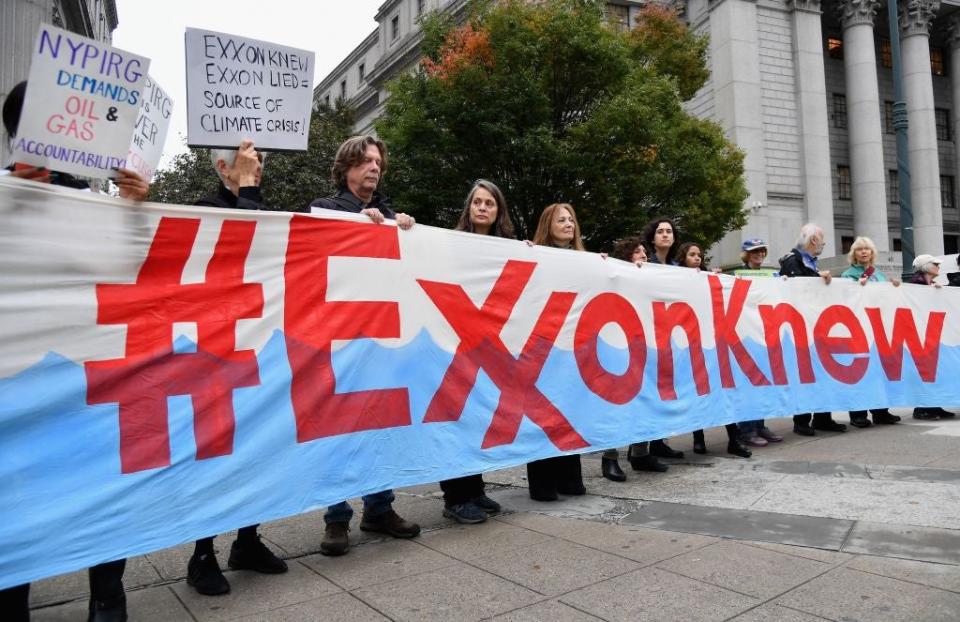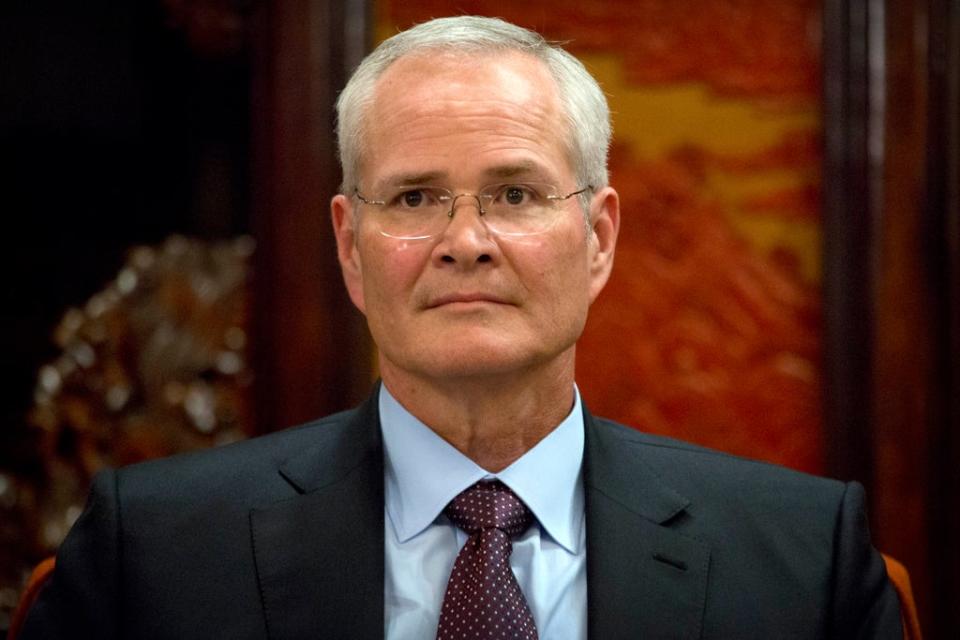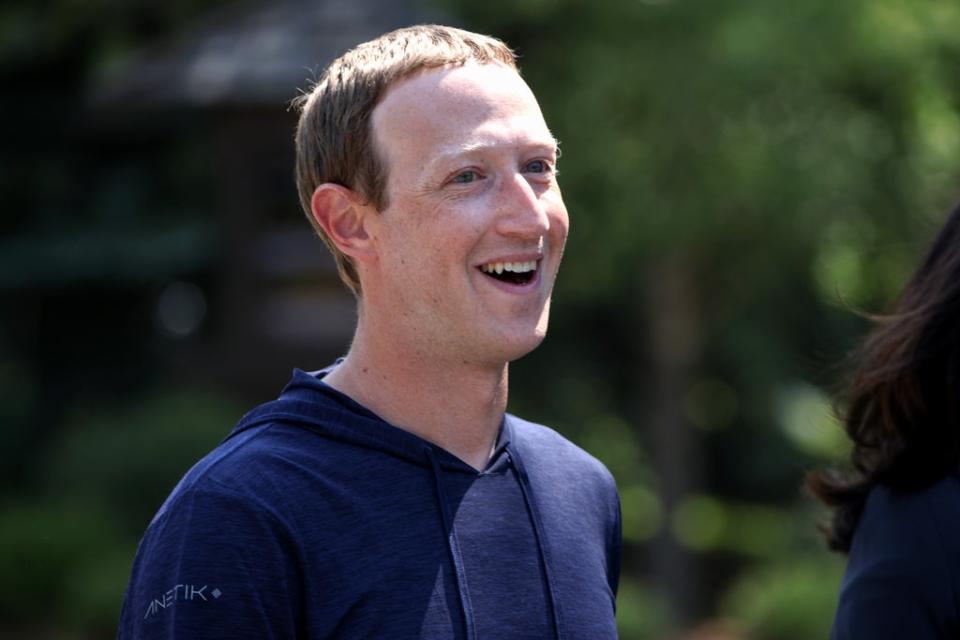World’s worst polluters accused of Facebook greenwashing campaign using ‘dark ads’
The word’s leading carbon polluters, such as ExxonMobil and Shell, have been accused of spending millions of dollars on “dark” Facebook adverts to influence the debate over the climate crisis and renewable energy at the most critical of moments.
As more than 100 global leaders and business heads gather in Glasgow to try to set ambitious targets to cut the emission of CO2 and move the world towards renewable energy, some of the worst emitters of greenhouse gases have been accused of “greenwashing” their reputations and trying to influence debates over fossil fuels.
Data collated by Eco-Bot.Net, a group made up of artists, technology experts and lawyers, has identified at least 1,700 “dark ads” or pieces of sponsored content from 2021 alone.
Watch: Which countries are the biggest polluters?
The adverts were retrieved using an AI system and had been created by what activists have called the “top 100 carbon majors”, the 100 companies and corporations blamed for producing as much as 71 per cent of all historical and current greenhouse gas emissions.
A 2017 report that identified those 100 companies also said that just 25 of them were responsible for half of global emissions since 1988, the year the UN Intergovernmental Panel on Climate Change (IPCC) was established.
Activists say the most frequent users of greenwashing adverts were ExxonMobil, the Texas-based oil and gas giant; Canadian mining firm Teck Resources; Mexico’s Cemex, a building materials company; Shell, the Anglo-Dutch multinational oil and gas company; and OMV, an Austrian petrochemical corporation.
‘Journalism as art’
The activists plan to drop “data bombs” on their website highlighting their findings throughout Cop26, the climate summit in Scotland, in what they say is an artistic endeavour to expose the scale and sophistication of greenwashing.
“We wanted to create a project that is as much investigative journalism as it is art, and try and kind of make these issues of climate change, misinformation and corporate greenwashing accessible for broad public audiences,” said artist Barnaby Francis, best known as Bill Posters.
“And this is kind of a time-based performance, over the duration of the Cop26 climate talks. Our website will be running for the duration of the talks and we’ll be doing data drops that reveal the scale of corporate greenwashing and climate change misinformation that’s linked to specific sectors of heavy emissions and high-polluting companies.”
Posters, 38, said the idea behind the project was the result of conversations between himself, Dale Vince, 60, the owner of British green power company Ecotricity, and Robert Del Naja, 56, a founder of the band Massive Attack. For more than a year, he and Del Naja have been working with a team of data engineers and others to develop a system that can identify the adverts being put on Facebook, then verify and examine them.
“The general public is very much aware of the harm caused by the disinformation propagated via social media platforms. This project aims to show that Facebook, in particular, is responsible for most of the climate ‘disinfo’ in current circulation, and will also reveal the dimensions of the greenwash industrial complex – and the profits it generates for the platforms,” Del Naja said in a statement.
He said his sector had historically been used by major transnational polluters, including fast food and the automotive industry, as “a public arena to do its laundry”.
He added: “As artists we have spent decades attempting to persuade promoters and venues to remove unethical, polluting identities and sponsors from live music events. This is the cultural sector’s opportunity to return the favour via public service intervention.”
‘Like your gas stove?’
Was there anything new about companies such as ExxonMobil or Shell being accused of greenwashing – have climate activists not been saying that for decades?
Posters said what was different was the scale and sophistication of such advertising, as well as its spread on social media platforms such as Facebook.
The group identified a series of specific adverts posted on Facebook that were viewable only to people in New York over the period of a few weeks, when officials were discussing a plan to gradually phase out the use of natural gas by 2040.

One of them, encouraging people to click on the advert, read: “ENERGY ACTION ALERT: Like your gas stove? Some New York lawmakers have proposed ending the use of natural gas or limiting consumer choice and potentially increasing energy costs.”
Another advert by ExxonMobil was targeted at Facebook users in Illinois, and lobbied against a measure before the state legislature, House Bill 3437, or HB3437, that would require energy companies to pay government-mandated wages for construction work on their facilities. The bill has been widely opposed by the industry.
In Canada’s British Columbia, there has long been concern about water pollution in the Elk Valley, where Teck Resources owns several coal mines that have been blamed for contamination. Reports suggest that, such is the controversy, the company is considering selling off the mines. In the summer, a regional court fined the company CA$60m after it pleaded guilty to two charges related to selenium and calcite pollution.
The Eco-Bot.Net team identified a series of “greenwashing” messages posted by Teck, which is headquartered in British Columbia’s largest city, Vancouver. One targeted at Facebook users in British Columbia read: “Protecting water in the Elk Valley is more than a job to us. It’s personal. Our home, our responsibility. See how we’re committed to protecting water in the Elk Valley for generations to come.”

In an interview, Posters claimed their work was the “first systemic, sector-by-sector analysis of greenwashing content from across sponsored ads, and also public social media posts, by these companies as well”.
He added: “It’s a full-sector analysis of the systemic nature and issues, and the scale of its campaigns.”
‘There is a clear conflict’
The revelations come as activists seek to pressure world leaders to adopt ambitious targets in Glasgow to try to limit carbon emissions, as the reality of the climate crisis becomes ever more stark.
While companies such as ExxonMobil have known about the threat of climate change for decades, they have always played it down. Last week, the company’s CEO, Darren Woods, was accused of lying to US Congress after claiming his company had not covered up its own research about oil and other fossil fuels’ contribution.

“There is a clear conflict between what Exxon’s CEO told the public and what Exxon scientists were warning privately for years,” said Democratic congresswoman Carolyn Maloney, chair of the house oversight committee.
Neither ExxonMobil, Shell, nor Cemex responded to inquiries from The Independent. A spokesperson for OMV, Andreas Rinofner, denied that the company engaged in greenwashing. “In addition to our traditional business, we are currently running a number of innovative projects intending to further develop our business to more sustainability in medium to long term,” he said, adding: “And we talk about it in public.”
Teck spokesperson Chris Stannell said the company was committed to supporting global action on climate change. He said: “We have set a long-term goal to be a carbon-neutral operator by 2050, and a shorter-term goal to reduce the carbon intensity of our operations by 33 per cent by 2030. We are committed to providing comprehensive and transparent information on our climate performance.”
A spokesperson for Meta, as Facebook’s corporation has been renamed in recent weeks, claimed that while the adverts in question run across many platforms, including television, Facebook offered an extra layer of transparency by requiring them to be available to the public in its ad library for up to seven years after publication.
Watch: Facebook is officially changing its name to ‘Meta’
The spokesperson said: “We reject ads when one of our independent fact-checking partners rates them as false or misleading, and take action against pages, groups, accounts, and websites that repeatedly share content rated as false. More than 100,000 people are visiting the Climate Science Centre every day, and we’re continuing to update it with new features.”
Posters said Facebook had a responsibility to regulate and monitor adverts that spread disinformation about climate change.
If Facebook was able to make an attempt to monitor disinformation over Covid-19, even as the science was changing on a weekly basis, why could it not act on something that had been agreed for 40 years, he asked.
“I would call Mark Zuckerberg a climate denier,” he said. “He’s ultimately responsible for the content on this platform, [but] he’s not taking action about this type of content when everyone including the IPCC has said that the era of climate denial and delay is over. That’s true, but not on social media.”
Read More
Cop26 news: Prince Charles calls summit ‘last chance saloon’

 Yahoo News
Yahoo News 
